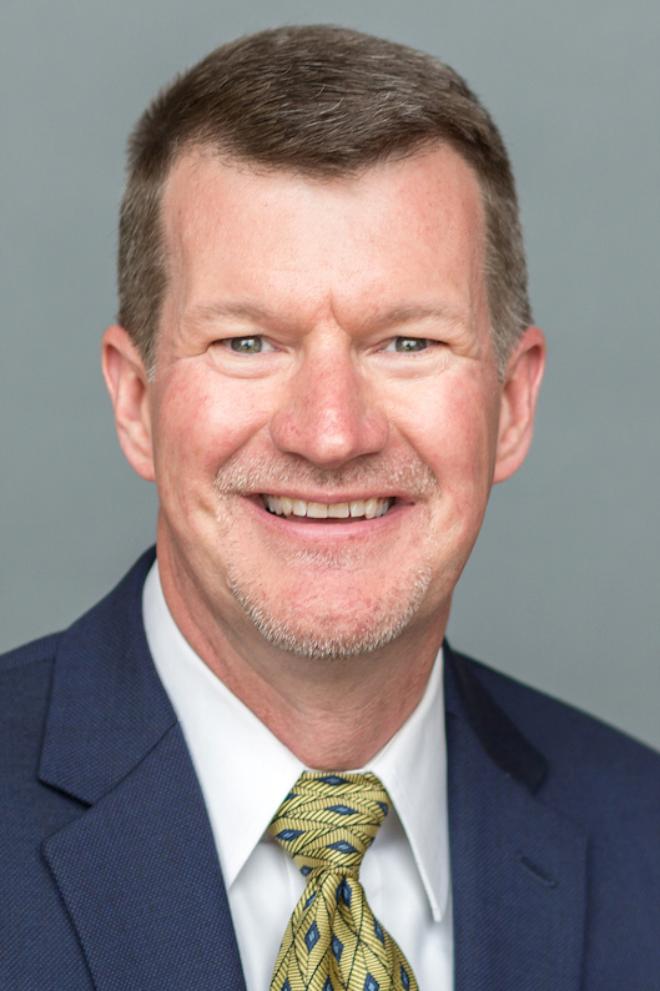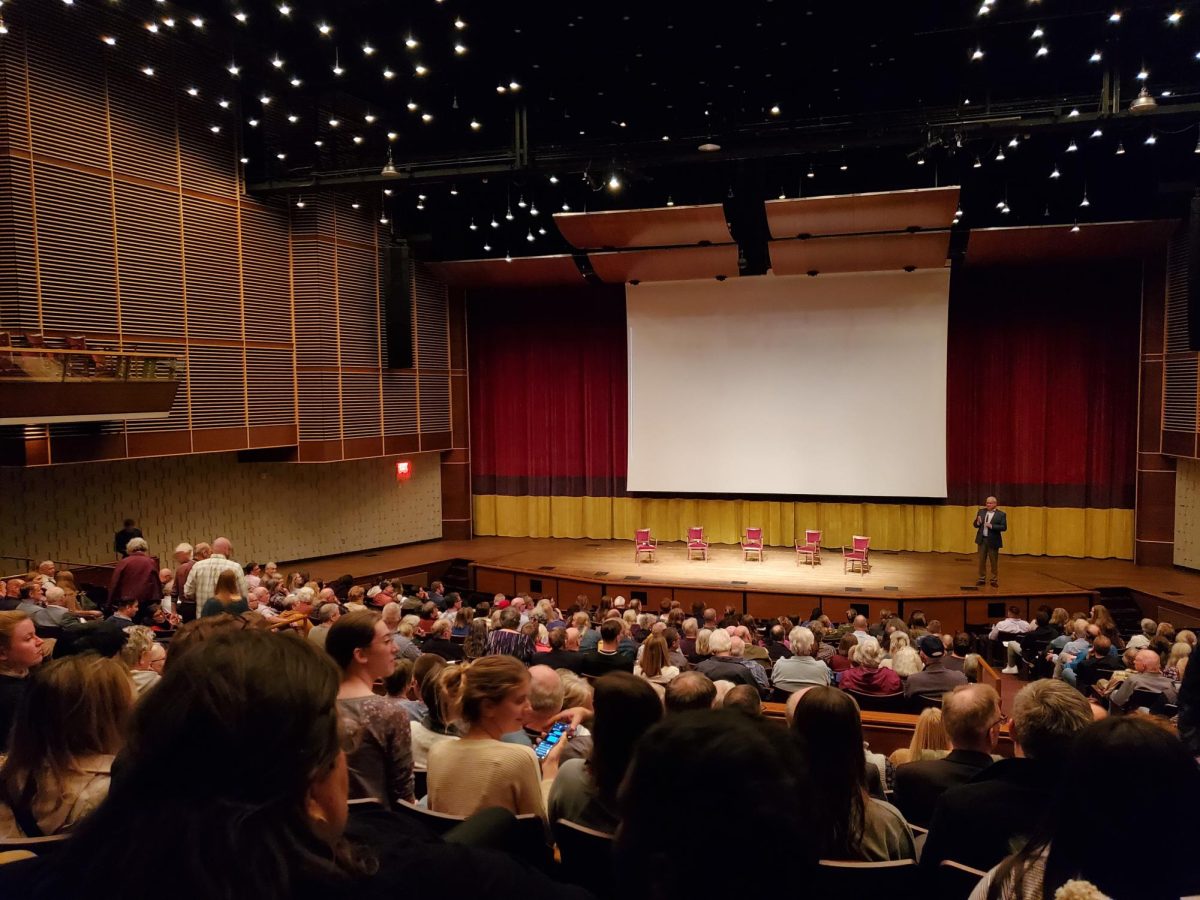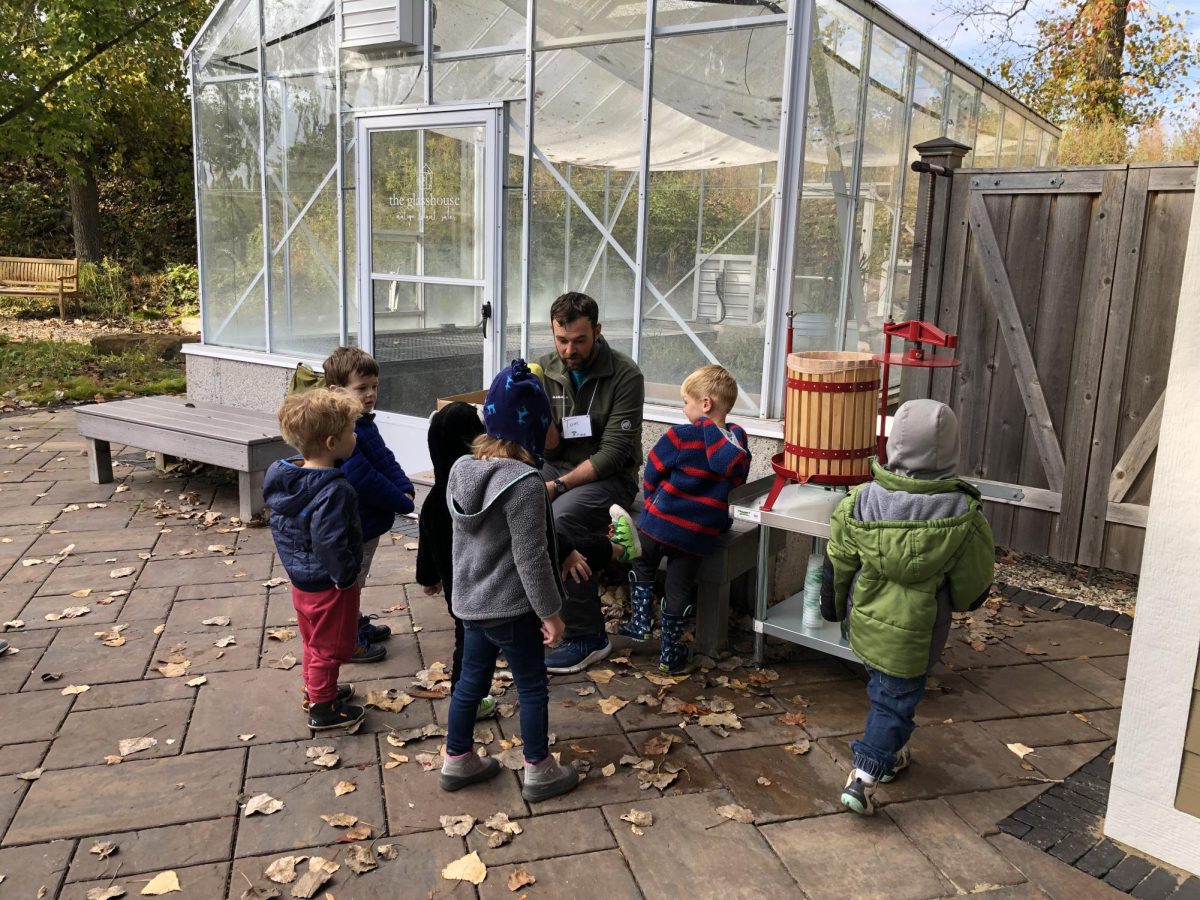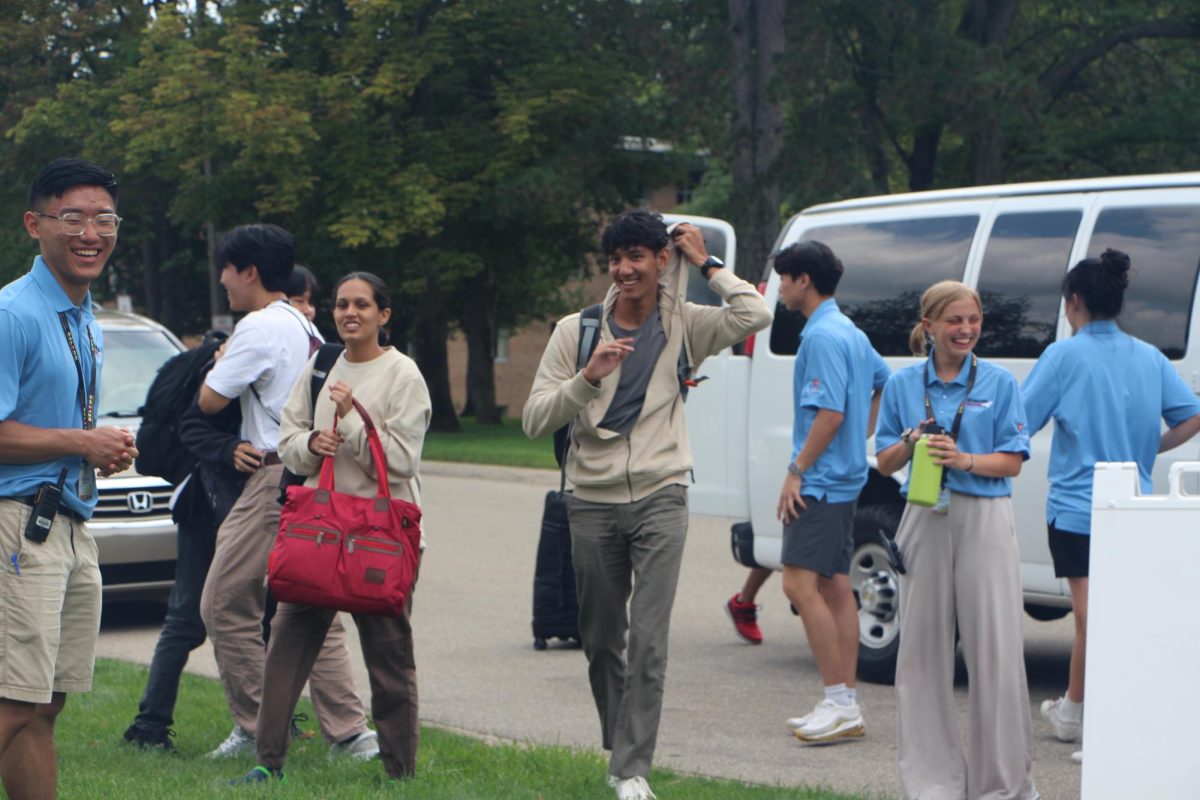While some students will be in the far corners of the world this Interim, many of us will remain here in Grand Rapids.
That being said, staying on campus for Interim is far from boring. Eight upperclassmen have shared their recommendations for exciting opportunities for this upcoming January.
No plane ticket required.
IDIS 150 13H Honors DCM: Dramatic Families.
This section will study a number of plays featuring families suffering from maladies such as death, abandonment and betrayal. These same families have members who each have their own dreams, desires and aspirations. We will ask questions such as these: How do these families differ from what might be considered God’s design for families? What has brought about these problematic situations? How do characters’ dreams seek to rise above the dysfunction? How are they the cause of it? How is redemptive hope present (or absent) in the different families? How is all of this relevant to our own lives? How can the study of such material glorify God, draw us closer to Him and others as we become increasingly conformed to his image and help advance his kingdom? We will study “The Tempest” by William Shakespeare, “A Doll House” by Henrik Ibsen, “The Glass Menagerie” by Tennessee Williams, “Death of a Salesman” by Arthur Miller and “A Raisin in the Sun” by Lorraine Hansberry. D. Urban. 8:30 a.m. to noon.
“I loved the wide variety of plays that we studied. We dived into many multifaceted texts and also viewed the stage versions; it gave me a greater understanding of influential and revered texts in drama! I took it with friends, learned a lot and developed a good relationship with my professor.” –Erin Smith
IDIS 150 23 DCM: God Rested, Why Can’t You?
Living in a life of a 24/7 world, the notion of rest may come to our mind as an anachronism, a fantasy or simply unimaginable. While we are created to worship God and rest in him, we tend to worship our work and rest in ourselves. These distortions affect our perceptions of ourselves, our relationships with others and most importantly, our relationship with God. We may wonder, “Do I realize life while I live it, every minute?” This class will examine some of the personal and socio-cultural forces that drive us toward living restless lives. In addition, this class will assist in developing a new perspective that will help rediscover leisure, work and rest. Y. Lee. 8:30 a.m. to noon.
“I enjoyed this class because it provided a refreshing perspective on the value of rest in a Christian life. We explored how rest can be included into our daily lives, and learned that rest is essential for a fulfilling and healthy life.” –Liz Van Ryn
IDIS 150 33 DCM: This class is a joke: Psychological perspectives on humor.
Humor is an integral part of the human experience, yet we rarely talk about it in academic settings. This course explores the many facets of humor, including a growing body of psychological research on why humor exists and how it impacts our daily lives. The course follows three themes: 1) Why were we created to have humor? 2) How and why has humor been distorted and sometimes causes harm? 3) How can we be discerning with humor and use humor in the way it was intended? Specific topics include: psychological theories of humor (including recent evolutionary accounts), Biblical portraits of humor, the way our brains process humor (including brain conditions where humor comprehension is diminished), how humor develops in children, adolescents and emerging adults, social and psychological effects of humor (i.e., dark humor, humor that stereotypes, etc.) and the relationship between humor and health. Considerable class time is devoted to critiquing and discussing examples of humor (e.g., comedy routines, movies, literature, sarcasm, jokes, etc.]. J. Moes, B. Riek, D. Tellinghuisen. 8:30 a.m. to noon.
“I really enjoyed the final project because we investigated humor in the dorms and figured out what situations had the biggest impact on how much people laughed. It was a cool topic to dive into.” –Nichole Lally
IDIS W21: Inside the January Series.
The award-winning January Series brings some of the world’s greatest authorities in their fields to Calvin to speak on a range of topics. Participants in this course encounter a diversity of issues and perspectives by attending the January Series programs. Students enjoy additional opportunities to interact with the speakers by watching live interviews with several presenters and spending part of each morning in personal conversation with the speakers. In response to the values and ideas they encounter with each speaker, students are challenged to clarify and articulate their own worldviews and to find ways to put their values into action. Course requirements include attendance at all January Series events. K. Saupe. 9 a.m. to noon & 12:30 to 1:30 p.m.
“I loved being able to engage more with the speakers and actually feel like I got to know them as people through question and answer times and hearing more about their stories. Also, most of the lectures are real conversations starters so it’s great to always have a community of people to discuss the topics with and dive deeper into questions we may have been left with. The January Series is one of the coolest opportunities on Calvin’s campus and getting to go each day as part of class is an incredible opportunity.” –Sarah Stripp
IDIS W19: Beatles & the ‘60s: Music & More. In this course the students get an overview of the career of perhaps the most important artists in 20th century popular music. They study the Beatles in their musical and historical settings as well as other important music and culture of the era. The course includes an analysis of the Beatles’ recordings, films, videos and concert recordings. Readings include recent books and articles that give context to their music and their careers. There is an emphasis on understanding the music in the context of the career path of the artist, other music of the time and other things going on in the world that both influenced and were influenced by their art. Christian engagement with the music of the Beatles and the culture of the ‘60s is an important part of the discussions. R. Keeley. 8:30 a.m. to noon.
“Professor Keeley was so passionate and it was fun to hear his experiences with the Beatles’ music and him living through it. It was interesting to watch the Beatles’ anthology to understand their lives and live it with them in a way. Both the documentary and their music are just incredible. I loved learning about the individual band members as well — to get to know them as people.” –Jessamyn Libolt
REL W41: Birth, Sex & Death in the Biblical World. Why is sexual intercourse “unclean” according to Leviticus 15:18? If the body is in the grave, where is the “person” after death? In recent years, anthropologists and other social scientists have begun to examine more closely the ways in which human cultures conceptualize and organize the ordinary events of the human life cycle. Biblical scholars, too, have begun to consider these things by using the Bible, not as a theological textbook, but as a window into the lives of ordinary people in ancient Israel and the early Church. This course looks at various aspects of the human life cycle as they are described or discussed in the Bible. Material from other ancient near Eastern cultures is also used to illuminate the thought world of the Bible. Some of the aspects of the life cycle covered are the reasons why people wanted to have children, theories of conception and fetal development, birth and the postpartum period, the female reproductive cycle, the structure of marriage, raising children, sexual activity and restrictions, celibacy, old age, death and the afterlife. This course may fulfill an elective in the religion major. R. Whitekettle. 8:30 a.m. to noon.
“In that class it was like we were traveling back in time into the world of the ancient near East. We immersed ourselves into their lives from birth to death. It was very interesting.” –Darren Kornelis
IDIS W24: Spiritual Strength Training. Do you want to build your spiritual strength and be strong in the Lord? Do you want to deepen your relationship with God through the power of the Holy Spirit? This course is designed for students who desire to have a dynamic, intimate relationship with Jesus, and who long to cooperate with the Holy Spirit in all aspects of life. The third person of the Trinity is often the least known, yet it is he who makes Jesus Christ known to us. Special emphasis is placed on teaching students about the Holy Spirit to understand how one may be transformed and empowered to live as Christ leads, rather than charting one’s own course and asking God to bless it. Course topics include: historical overview of the church’s understanding of the Holy Spirit; overview of Spirit-led waves of revival beginning in the 18th, through the 21st century; theological and historical reasons why many traditions have resisted emphasis on the Holy Spirit; what the Bible teaches about the divine personhood, and inward and outward works of the Holy Spirit; how to receive guidance from, cooperate with and be empowered by the Holy Spirit; how to discern and develop one’s gifts from the Holy Spirit; and what the Bible teaches about the healing ministry of Jesus as it relates to spiritual, emotional, relational and physical healing. Students are regularly provided with opportunities for the practical application of theological and theoretical topics via the incorporation of in-class exercises, opportunities to pray with classmates, opportunities to dialogue with and receive personal prayer from spiritual trainers and participation in a 2 1/2-day on-campus Dunamis Project conference (Jan. 23 to Jan. 25), sponsored by Presbyterian Reformed Ministries International. This course will fulfill the CCE requirement. J. Kraak, N. Van Noord. 2 p.m. to 5 p.m.
“One thing I really enjoyed about the class was the emphasis on experiential learning. We spent significant time each day practicing contemplative, listening prayer for ourselves and others. It wasn’t scary or weird but very nice and comfortable. That kind of prayer practice really enhanced my prayer life for myself and others.” –Karlene Kristich
“What I appreciated most about Spiritual Strength Training was that they provided a biblically sound understanding of who the Holy Spirit is, something that the CRC is often silent about. I also appreciated the fact that the class was structured so that we, as students, were able to put into practice what we had learned that day, whether that be praying for or using certain spiritual gifts, listening to God or simply praying for each other.” –Anthony Meyer









